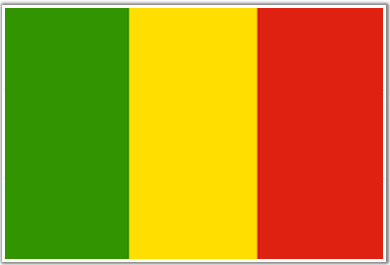Mali's second round parliamentary election is under way, overshadowed by fatal clashes in its vast northern desert region.
Jihadists claim responsibility for the killings in Kidal of two UN peacekeepers from Senegal.
Polling began slowly in Mali's capital Bamako on Sunday as doubts remained about the western African country's recovery in the wake of last year's military coup and unrest that ultimately prompted French intervention. EU observers urged Mali's 6.5 million eligible voters to turn out.
Sunday's voting was to cap a recovery that was marked in June by a peace deal and in August by the election of President Ibrahim Boubacar Keita.
At stake on Sunday were 128 seats in Mali's 147-seat national assembly.
In the first round on November 24, which drew a turnout of only 37 percent, just 19 seats were decided. One of those already elected is Soumaila Cisse of the Timbuktu region, who challenged Keita in August's presidential election.
Observing Sunday's vote were hundreds of international and Malian monitors – mainly in safer regions of Bamako and central Mali.
Killings in Kidal
The election was preceded by the deaths on Saturday of two UN peacekeepers from Senegal in the northeastern city Kidal.
Four Malian soldiers were also seriously wounded when a suicide bomber ploughed an explosives-laden car into a bank, which the troops were guarding.
Until recently, Kidal had been a northeastern rebel bastion.
Malian jihadist Ould Badi told the French news agency AFP that Sunday's bombing was in retaliation for the French-led military intervention launched in January against Islamist rebels in "Azawad," the ethnic Tuareg name for northern Mali.
'Huge' operation
AFP quoted military sources on Sunday as saying that the French army had carried out a "huge" operation against armed Islamists north of the desert caravan town of Timbuktu over the past week.
In January, France sent troops to its former colony. They and African troops were then tasked by the UN Security Council with providing security alongside the Malian army for the elections.
The crisis began early last year when rebels of the National Movement for the Liberation of Azawad (MNLA) launched a string of Tuareg insurgencies in the north.
A subsequent coup in Bamako led to chaos, and armed Islamist extremists linked to Al-Qaeda overpowered the Tuareg to seize control of Mali's northern half.
Broadcasting resumes
Last week, public radio and television was restarted in Kidal. The station had been forced off the air nine months ago by the rebels. The building was handed back in November in line with the June peace deal.
Early last week, the European Union offered Bamako 12 million euros ($16.5million) to help reform its justice system during a visit by Keita to Strasbourg.
Earlier this year, an international donor conference had raised 3.2 billion euros for the African country.
– AFP, dpa, AP


